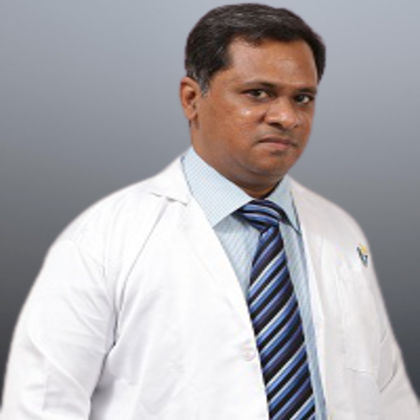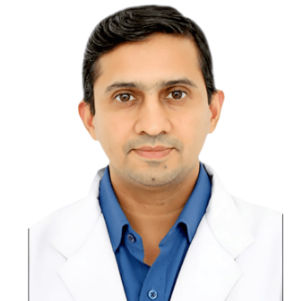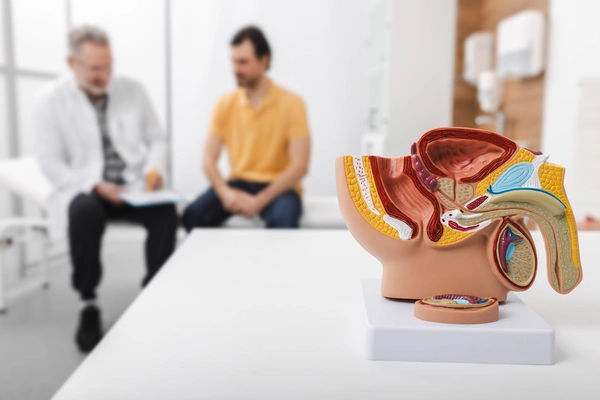Erectile Dysfunction: Causes, Signs, and Treatment
Explore the causes, signs, and treatment options for erectile dysfunction to better understand this common condition and manage it effectively.

Written by Dr. Rohinipriyanka Pondugula
Reviewed by Dr. J T Hema Pratima MBBS, Fellowship in Diabetes Mellitus
Last updated on 13th Jan, 2026

Introduction
Erectile dysfunction (ED) is more than just an occasional inconvenience; it's a common health condition that affects millions of men worldwide, impacting not only physical intimacy but also self-esteem and emotional well-being. Characterized by the consistent inability to achieve or maintain an erection firm enough for sexual intercourse, ED is often a window into a man's overall health. Contrary to popular belief, it's rarely just a natural part of aging and is frequently linked to underlying physical or psychological issues. Understanding what leads to signs of erectile dysfunction is the first and most crucial step toward effective management and reclaiming a healthy sex life. This comprehensive guide will explore the myriad causes, from cardiovascular problems to everyday stress, break down the symptoms, and outline the modern solutions available, empowering you with knowledge and a path forward.
What Exactly is Erectile Dysfunction (ED)?
Understanding the condition is the first step toward effective management.
Defining the Condition
Erectile dysfunction is defined as the persistent inability to attain or sustain a penile erection sufficient for satisfactory sexual performance. It's important to distinguish this from fleeting episodes of erectile trouble, which every man experiences from time to time due to fatigue, stress, or excessive alcohol. The clinical definition often considers a timeframe; if the problem occurs more than 50% of the time for over three months, it's advisable to seek a medical opinion.
Occasional vs. Chronic ED: Knowing the Difference
Occasional erectile difficulty is normal and usually situational. Chronic ED, however, is recurring and points to an underlying issue. If you find yourself constantly worried about your performance or avoiding intimacy due to fear of failure, it’s likely moved into the territory of a chronic condition that deserves attention.
Consult a Urologist for the best advice
The Primary Culprit: Physical Causes of ED
Most cases of ED, especially in older men, are rooted in physical causes. These issues disrupt the complex chain of events required for an erection, which involves nerves, blood vessels, hormones, and muscles.
Vascular Issues: When Blood Flow is Compromised
The most common physical cause of ED is vascular disease. An erection requires a significant increase in blood flow to the penis. Conditions like atherosclerosis (hardening of the arteries), high blood pressure, and high cholesterol can damage and narrow these blood vessels, restricting this essential flow. In fact, ED can be an early warning sign of impending cardiovascular problems.
Neurological Disorders: Disrupting the Nerve Signals
The brain must send signals through nerves to initiate an erection. Neurological conditions like multiple sclerosis (MS), Parkinson's disease, spinal cord injuries, and even complications from diabetes (diabetic neuropathy) can interfere with these crucial messages, preventing the erection process from starting or completing.
Hormonal Imbalances: The Role of Testosterone
While not as common as vascular causes, low testosterone (male hypogonadism) can contribute to ED by lowering libido. However, it's often not the sole culprit. Other hormonal issues, such as thyroid problems or elevated prolactin levels, can also play a role.
Medications and Substance Use
A surprising number of prescription medications can list ED as a side effect. These include drugs for high blood pressure, antidepressants, antihistamines, and medications for prostate cancer. Furthermore, recreational drug use, chronic alcohol abuse, and tobacco smoking are significant risk factors that can damage blood vessels and lead to persistent erectile problems.
The Mind-Body Connection: Psychological Causes of ED
The brain is the most powerful sex organ. If the mind isn't engaged, the body won't follow. Psychological causes are often the primary factor in ED in younger, healthier men.
Stress, Anxiety, and Performance Pressure
Everyday stress from work, finances, or family can suppress sexual arousal. More specifically, performance anxiety, the fear of not being able to perform sexually, creates a vicious cycle. The anxiety of a previous episode of ED can cause worry about the next encounter, leading to further erectile difficulty.
Depression and Mental Health
Depression is a profound drain on energy, libido, and self-confidence. It can directly cause ED. Ironically, many antidepressants prescribed to treat depression can also cause or worsen ED, creating a complex situation that requires careful management by a doctor.
Relationship Problems
Underlying tension, poor communication, or unresolved conflicts with a partner can severely inhibit sexual function. A lack of emotional intimacy can easily translate into a lack of physical intimacy.
Lifestyle Factors You Can Control
Your daily habits have a direct and powerful impact on erectile function.
The Impact of Smoking and Alcohol
Smoking accelerates vascular damage, narrowing the arteries that supply blood to the penis. Alcohol is a central nervous system depressant. While a drink or two might lower inhibitions, excessive consumption can numb the nervous system, making it difficult to achieve an erection.
Obesity and Sedentary Habits
Carrying excess weight, particularly around the abdomen, is a key risk factor. It promotes hormonal changes (like lowering testosterone), contributes to vascular disease, and can fuel psychological issues like low self-image. A sedentary lifestyle exacerbates these problems.
Diet and Erectile Health
A diet high in processed foods, sugar, and unhealthy fats promotes inflammation and vascular disease. Conversely, a Mediterranean-style diet rich in fruits, vegetables, whole grains, and lean protein supports healthy blood flow and can help reverse erectile dysfunction naturally.
Recognizing the Signs and Symptoms of ED
The signs of ED extend beyond just "not getting hard." They can include:
Trouble getting an erection.
Difficulty maintaining an erection during sexual activities.
Reduced interest in sex (which may be linked to hormonal or psychological causes).
Consistently taking an unusually long time to achieve an erection.
How is Erectile Dysfunction Diagnosed?
Diagnosing ED involves a holistic approach to find the root cause.
Medical History and Physical Exam
Your doctor will ask detailed questions about your symptoms, health history, lifestyle, and stress levels. They may perform a physical exam to check for nerve sensation in the pelvic area and signs of underlying health issues.
Potential Lab Tests and Screenings
Blood tests are common to check for low testosterone levels, diabetes, heart disease, and other health conditions. Apollo24|7 offers a convenient home collection for tests like HbA1c for diabetes or lipid profiles for cholesterol, making this first step easier. In some cases, a nocturnal erection test or ultrasound might be used.
Get Your Health Assessed
Effective Treatment Pathways for ED
The good news is that ED is highly treatable. The right approach depends on the underlying cause.
Oral Medications (PDE5 Inhibitors)
Drugs like sildenafil (Viagra), tadalafil (Cialis), vardenafil (Levitra), and avanafil (Stendra) are often first-line treatments. They work by enhancing the effects of nitric oxide, a natural chemical that relaxes penile muscles and increases blood flow. They are highly effective but require sexual stimulation to work and are not suitable for everyone, especially men on certain heart medications.
Lifestyle Modifications and Natural Remedies
For many men, this is the most powerful treatment. Losing weight, starting a regular exercise routine, quitting smoking, reducing alcohol, and managing stress through yoga or meditation can dramatically improve or even solve ED without medication.
Psychological Counseling and Therapy
If stress, anxiety, depression, or relationship issues are at the core, seeing a therapist or counsellor can be transformative. Cognitive-behavioral therapy (CBT) is particularly effective for tackling performance anxiety.
Other Medical Devices and Procedures
For those who don't respond to medication, options include penis pumps, injectable medications, or, in rare cases, surgical penile implants.
Prevention: Building a Foundation for Lifelong Health
Preventing ED revolves around the same principles of a healthy lifestyle:
Maintain a healthy weight.
Exercise regularly.
Eat a heart-healthy diet.
Don't smoke.
Limit alcohol.
Manage stress and seek help for mental health concerns.
Get regular check-ups to monitor blood pressure, cholesterol, and testosterone.
When to See a Doctor: Don't Delay
You should consult a doctor if:
ED is a consistent problem.
You have concerns about your erections or sexual health.
You have underlying health conditions like diabetes or heart disease.
Conclusion
Understanding the multifaceted causes of erectile dysfunction is empowering. It moves the conversation from one of embarrassment to one of proactive health management. Whether the roots are in your cardiovascular system, your hormone levels, or your stress levels, effective solutions exist. By addressing the underlying issues through medical guidance, lifestyle changes, or psychological support, you can not only improve your sexual health but also your overall quality of life. Taking that first step to talk to a healthcare provider is the most powerful action you can take. Your journey to better health starts with a single conversation.
Consult a Urologist for the best advice
Consult a Urologist for the best advice

Dr. Deepak Bolbandi
Urologist
24 Years • MBBS, MS, DNB, MCh (Uro)
Bengaluru
Apollo Hospitals Bannerghatta Road, Bengaluru

Dr. Jimmy Shad
Paediatric Urologist
20 Years • MS, MCh (Paediatric Surgery) , Fellowship in Paediatric Urology
Chennai
Apollo Children Hospitals Greams Road, Chennai
(250+ Patients)

Dr. Dhruv B. Patel
Urologist
12 Years • MBBS, MS, DrNB (Urology - IKDRC, Ahmedabad)
Ahmedabad
Apollo Hospitals Gandhinagar, Ahmedabad
(25+ Patients)

Dr. Ravishankar L S
Urologist
25 Years • MS, DNB (Gen. Surg.) DNB (Genitourinary Surg.)
Chennai
Apollo Speciality Hospitals, Teynampet, Chennai

Dr. Rohit Bhattar
Uro Oncologist
14 Years • MBBS, MS, MCh (Urology), Fellowship in Uro-oncology and Robotic Urology (United Kingdom)
Ahmedabad
Apollo Hospitals Gandhinagar, Ahmedabad
(100+ Patients)
More articles from Erectile Dysfunction
Frequently Asked Questions
1. What is the main cause of erectile dysfunction?
There is rarely one single cause. In most cases, especially in older men, it's caused by physical conditions that affect blood flow, like heart disease, diabetes, or high blood pressure. In younger men, psychological factors like stress and anxiety are more common triggers.
2. Can erectile dysfunction be cured?
It depends on the cause. If ED is caused by a reversible condition or lifestyle factor, it can often be cured completely through treatment and changes. For chronic conditions, it can almost always be effectively managed with medication, devices, or therapy, allowing for a normal sex life.
3. How can I test for ED at home?
While you can't formally diagnose yourself, paying attention to patterns is key. Note if you have morning erections, which suggest the physical machinery is working and point to a psychological cause. The best 'test' is to consult a doctor who can provide a proper diagnosis.
4. What are the first signs of ED?
The earliest signs are often inconsistent performance and trouble getting an erection one time but not another. This may progress to taking longer to get an erection, needing more direct stimulation, or having trouble maintaining it during intercourse.
5. Does masturbation cause ED?
No, masturbation itself does not cause ED. However, excessive masturbation that leads to anxiety, guilt, or unrealistic expectations about sexual performance could contribute to psychological ED. In moderation, it is a normal and healthy activity.





_0.webp)

